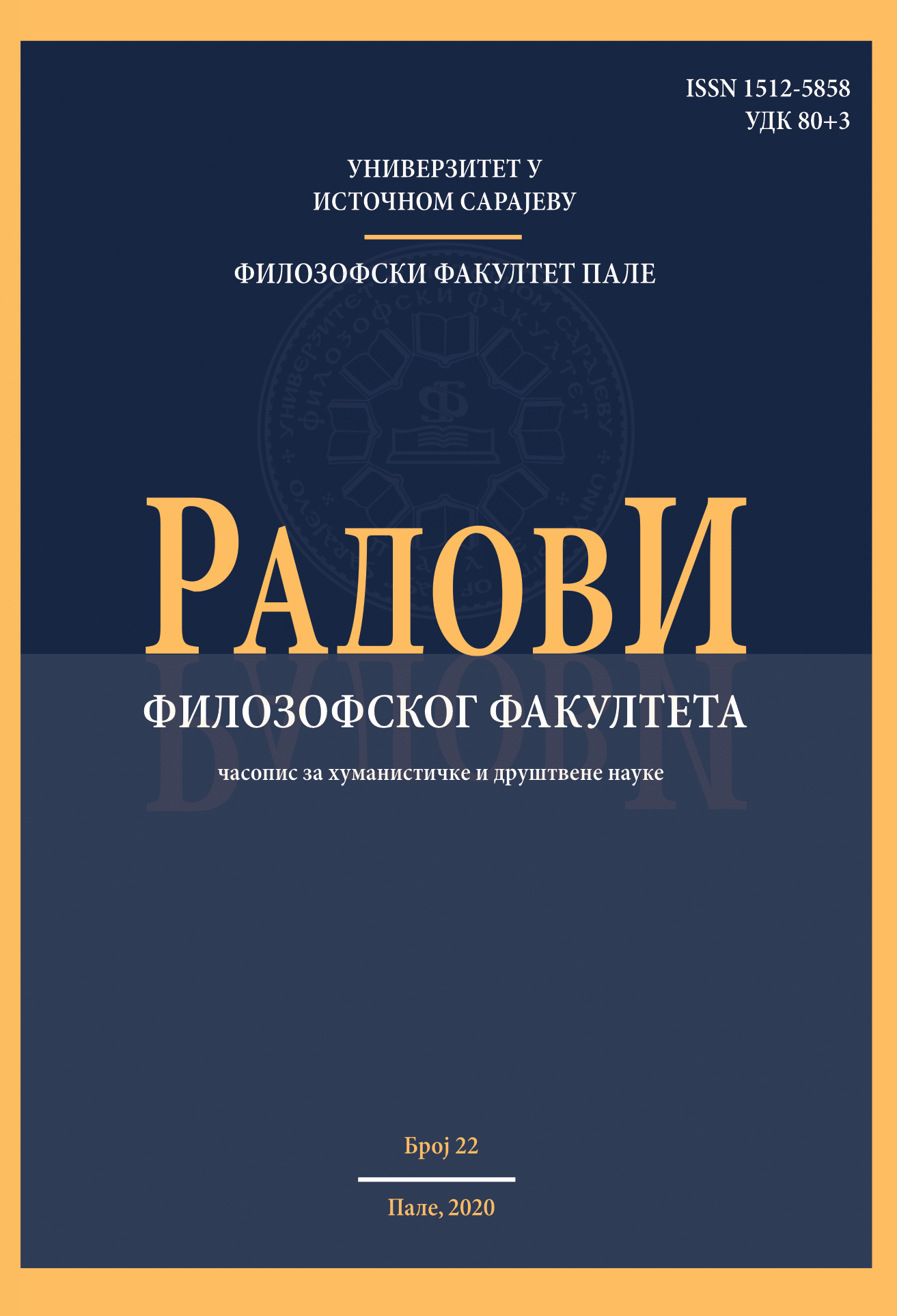STUDENTS’ TRANSLATIONS OF ADJECTIVAL COMPOUNDS: A CORPUS ANALYSIS
DOI:
https://doi.org/10.7251/RFFP2022097BAbstract
The aim of the paper is to analyze English language students’ translations of adjectival compounds and examine various linguistic choices, given the structural differences between English and Serbian. The research relies on a students’ corpus compiled at the University of East Sarajevo and observes the students’ translations of three texts from English into Serbian. A total of nine adjectival compounds with a similar morphological structure was excerpted (brick-faced, hand-carved, pint-sized, real-life, self-conscious, self-possessed, self-reliant, small-featured, tree-lined). Their translations might prove to be problematic for various reasons such as lack of translation equivalents, culture-specific lexemes, or differences in structural characteristics of the two languages. The paper thus provides the morphological and semantic analyses of the source vocabulary, lists the offered translations, and categorizes the adequacy of translation in the target language. Some pedagogical implications are offered in the conclusion.
